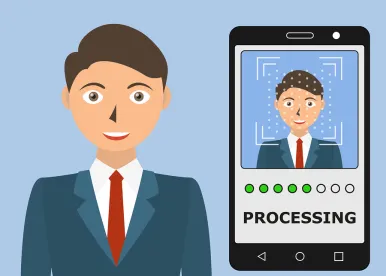In a surprising turn of events, the California State Senate significantly amended California Assembly Bill 1281 (“AB-1281”) late last week. AB-1281 initially proposed enhanced protections for the use of facial recognition technologies, which have now been removed. The amended AB-1281 now focuses on extending by one year the B2B and employee exemptions provided for under the California Consumer Privacy Act (“CCPA”), previously discussed here. Those exemptions currently become inoperative on January 1, 2021; if AB-1281 is enacted, they would become inoperative on January 1, 2022. Note, however, that if the California Privacy Rights Act (read our recent analysis here) passes on the upcoming November 3rd ballot, these exemptions will be extended for an additional year, and will become inoperative on January 1, 2023.
Prior to these recent amendments, AB-1281 would have required California businesses that use facial recognition technology to disclose that usage in a clear and conspicuous physical sign and subject violators to civil penalties. The amended version of AB-1281 removes all provisions relating to facial recognition technology and required signage and instead only extends the B2B and employee CCPA exemptions as described above.
So what happened?
As we previously discussed, due to COVID-19 concerns, California State Senate President Pro Tem, Toni Atkins (D – District 39), instructed Senate committee chairs that they should reconsider their committees’ priorities and reduce the number of bills to focus on COVID-19-related legislation. This bill was therefore likely amended to allow the Senate to extend the exemptions without having to introduce an entirely new bill to do so, thus freeing the legislature to focus on COVID-related legislation. It is certainly possible that a bill addressing the use of facial recognition technology that is similar to the original AB-1281 could be introduced once COVID-related concerns have passed.
Will AB-1281 pass?
AB-1281, as amended, was proposed by Assembly Member Edwin Chau (D-District 49), the Chair of the Committee on Privacy and Consumer Protection, who has had a strong influence on California privacy law during his tenure (including being the proponent of CCPA and a number of successful amendments to CCPA). His support makes it likely that it will pass and the process that has been followed – amending an existing bill that had already been approved by one chamber – has the potential to significantly expedite the process necessary to achieve final legislative approval of AB-1281.
We will continue to track AB-1281 and continue to provide you with breaking updates.






 />i
/>i
